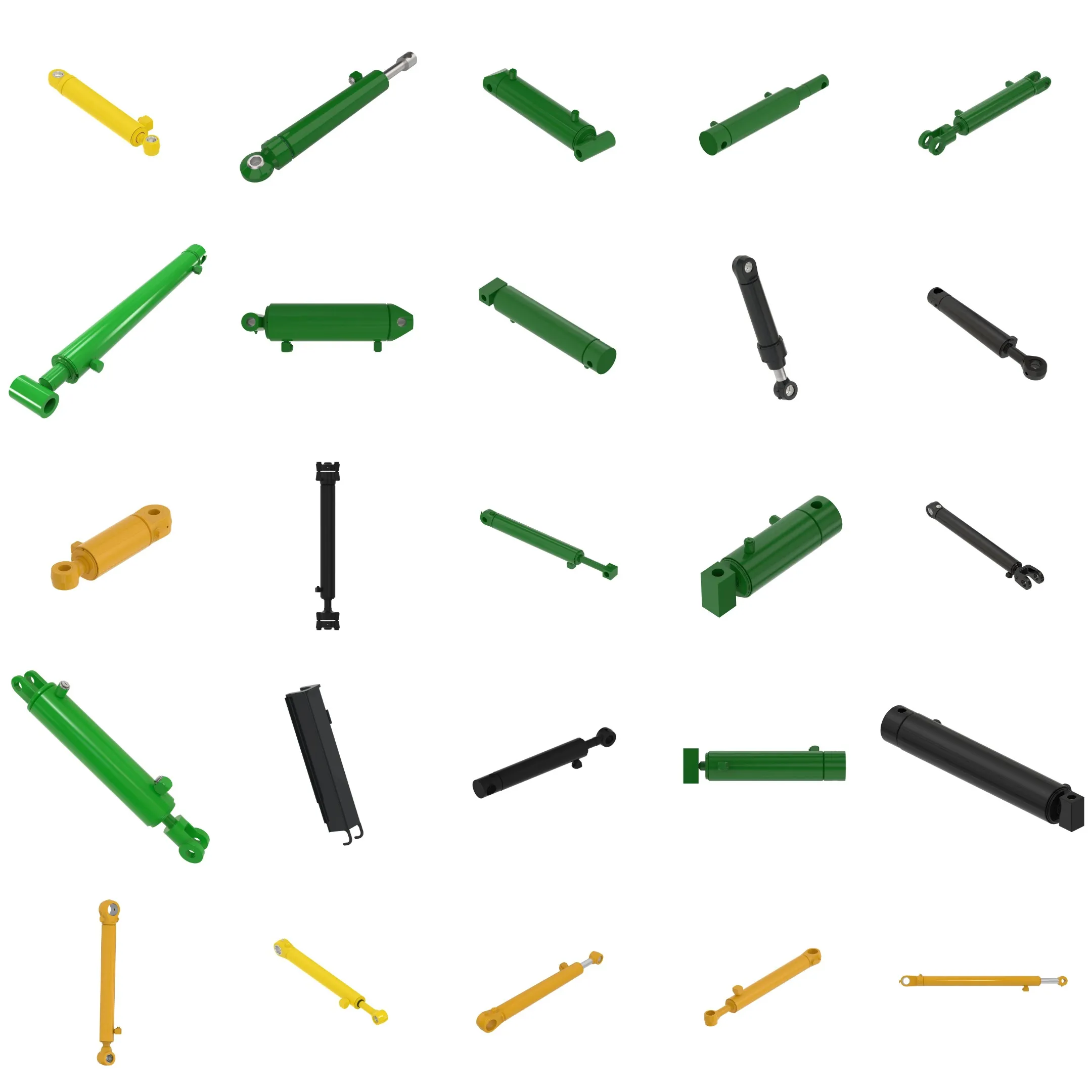Replacement Of AHC10865 Wing Lift Hydraulic Cylinder
Являясь одним из производителей, поставщиков и экспортеров механической продукции, мы предлагаем гидравлические цилиндры и многие другие изделия.
Пожалуйста, свяжитесь с нами для получения подробной информации.
Почта:sales@hydraulic-cylinders.net
Производитель поставщик экспортер гидроцилиндров.
Replacement Of AHC10865 Wing Lift Hydraulic Cylinder
Introduction
The Replacement Of AHC10865 Wing Lift Hydraulic Cylinder is a hydraulic component used for lifting wings in various applications. This cylinder plays a crucial role in ensuring the proper functioning of equipment.
Specifications and Models
Weight: 29.44 lb
Height: 3.3 in
Width: 5.5 in
Length: 26.5 in
Models: CX15, E12, E15, FC10R, FC15E, FC15M, FC15R, HX15, M15, MX15, R10, R15
Характеристики
- Improved Equipment Performance: Replacing damaged or worn hydraulic cylinders can restore the normal operational capabilities of equipment, ensuring optimal performance in various applications.
- Enhanced Safety: Regularly replacing hydraulic cylinders reduces safety hazards associated with cylinder failures, ensuring the safety of operators and equipment.
- Overload Protection: New cylinder designs often incorporate better overload protection mechanisms, enhancing safety.
- Quick Installation: Modern hydraulic cylinders are designed for easy installation and replacement, minimizing downtime.
- Standardized Components: Many hydraulic cylinders are standardized products, making it easier to obtain replacement parts in the market.
Applications
- Excavators: Hydraulic cylinders in the arms or buckets of excavators may get damaged due to prolonged usage or overloading, requiring replacement to restore normal operations.
- Cranes: Hydraulic cylinders in crane boom lifts are prone to wear and tear during frequent lifting and lowering operations, necessitating regular replacement for safety.
- Tractors: Front-end loader hydraulic cylinders in tractors may experience leaks or performance degradation during continuous lifting and tilting operations, requiring replacement.
- Harvesters: Hydraulic cylinders in the hydraulic system of harvesters endure high pressure during harvesting, and fatigue may lead to cylinder damage, requiring timely replacement to maintain efficiency.
- Automated Production Lines: Hydraulic cylinders are used to control robotic arms and other automated equipment. Cylinder failures can significantly impact production efficiency and should be promptly replaced.
- Die Casting Machines: Hydraulic cylinders in die casting machines may experience performance degradation in high-pressure and high-temperature environments. Regular replacement ensures product quality.
- Mining Equipment: Hydraulic cylinders are used for lifting and moving heavy loads in mining equipment. Due to harsh working conditions, regular inspection and replacement are necessary to avoid equipment failures.
- Bulldozers: Wear of hydraulic cylinders in the bulldozer blade can cause a decrease in pushing power, requiring timely replacement to maintain operational efficiency.

Maintenance Tasks
- Regular Inspection: Perform routine checks to identify any signs of wear, leaks, or damage in the hydraulic cylinder.
- Proper Lubrication: Ensure proper lubrication of the cylinder’s moving parts to reduce friction and extend its lifespan.
- Seal Replacement and Calibration Check: Replace worn seals and regularly calibrate the cylinder to maintain optimal performance.
Safety Considerations and Environmental Factors
When using hydraulic cylinders, it is important to follow safety measures to prevent accidents and ensure a safe working environment. Implementing safety protocols and using appropriate equipment is crucial.
Troubleshooting and Common Issues
Common issues with hydraulic cylinders include leaks, insufficient power, and erratic movements. Here are some troubleshooting tips:
- Inspect all connections and seals for leaks and tighten if necessary.
- Check the hydraulic fluid levels and ensure they are within the recommended range.
- If power is insufficient, check for any restrictions in the hydraulic lines and remove any blockages.
- If the cylinder’s movements are erratic, inspect the control valves and ensure they are functioning properly.
Preventive Measures
To minimize potential issues, consider the following preventive measures:
- Regularly inspect and maintain the hydraulic system.
- Ensure proper installation, lubrication, and adjustment of the cylinder.
- Provide guidance on aligning the cylinder correctly during installation.
- Recommend proper inspection, repair, and replacement procedures.
- Offer replacement parts and rebuilding services to extend the lifespan of the hydraulic cylinder.

Design Considerations and Selection Criteria
When selecting a hydraulic cylinder, several factors should be considered:
- Bearing Capacity: The cylinder should be able to handle the intended load.
- Sealing: Selecting appropriate seals, such as piston seals and rod seals made from durable materials like polyurethane or nitrile rubber.
- Durability: The cylinder body and threaded ends should undergo fine processing to improve wear resistance.
- Safety: Designing the cylinder with safety features to prevent accidents and ensure operator protection.
- Maintainability: Consider ease of maintenance, including access to components and availability of spare parts.
Sealing and Lubrication
To ensure proper sealing and lubrication:
- Utilize various sealing components, such as piston seals and rod seals made from wear-resistant materials.
- Apply appropriate hydraulic oil to lubricate the cylinder’s moving parts regularly.
- Thoroughly treat the cylinder body and threaded ends to enhance wear resistance.
Regular Inspection and Preventive Maintenance
- Proper installation, lubrication, and adjustment of the cylinder are essential.
- Provide guidance on properly aligning the cylinder during installation.
- Recommend inspection, repair, and replacement procedures.
- Offer replacement parts and rebuilding services to ensure extended lifespan of the hydraulic cylinder.
- Provide tips and techniques to enhance the durability of the hydraulic cylinder.
Product Installation Guide
To ensure correct installation:
- Thoroughly clean the mounting
Take a Tour of Our VR Factory:
Take a tour of our VR factory with the following
Hydraulic Cylinder Application:


